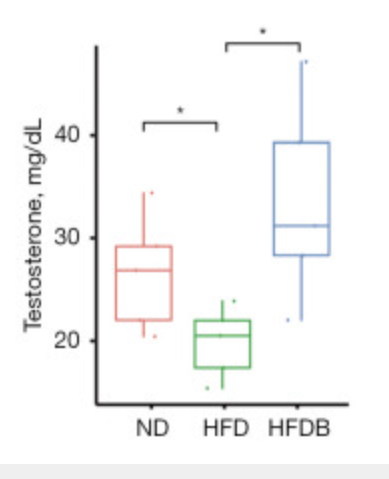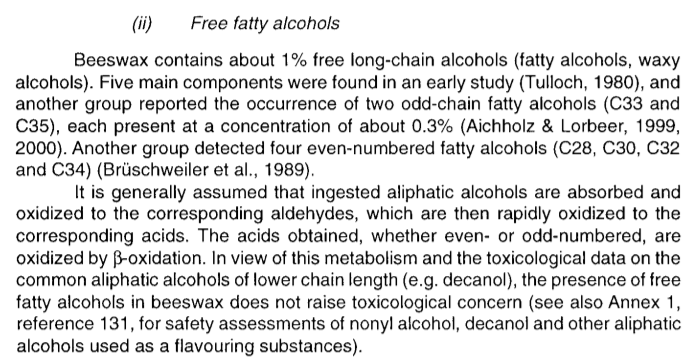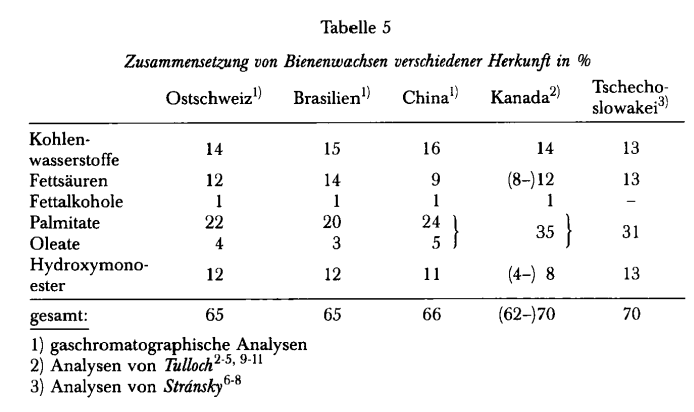Random, interesting studies
-
@Mauritio i got a powdered one took some time to get. no noticeable improvements so far. in the feeding studies 60d worked better than 30d (both worked well) so there's some time buildup effect. but expected to notice something acute.
this one i have has some black dots mixed into the powder not listed in the ingredients. so some concern considering it can be extracted from a mold. i guess if the mold is dead it could still trigger inflammation?
i tested it in some 6% h2o2 liquid and it fizzed like fuck so the white powder is legit (can do that with some potato slices too much milder response)Same wondered if it would be good for that, i started putting it on one side of hairline curious to see if it creates regrowth. putting in a bit of glycerine
-
@cs3000 ok thanks for the update.
I'll probably start taking it as well.
-
Baicalin
Increases dopamine and tyrosine hysdroxliase. Possible ADHD treatment.
https://pubmed.ncbi.nlm.nih.gov/30736828/"...baicalin can ameliorate neuropathic pain by suppressing HDAC1 expression ."
https://pubmed.ncbi.nlm.nih.gov/23684218/Inhibits carbonic anhydrase II, but also increase Acetylcholin quite strongly.
https://pubmed.ncbi.nlm.nih.gov/38004276/Outperforms Minoxidil in growth study.
https://pmc.ncbi.nlm.nih.gov/articles/PMC9699788/#sec3Increases UCP1 AND PGC1a
https://pubmed.ncbi.nlm.nih.gov/35337814/ -
Nicotine acts on thyroid receptors.
"...nicotine and learning uniquely acted to increase TR activation..."
"Acute nicotine enhances learning and these effects may involve processes regulated by the transcription factor TRβ."
-
Sodium butyrate downregulates 5HT2a receptor. Has anti depressant effect.
https://pubmed.ncbi.nlm.nih.gov/21812623/
Sodium butyrate increases Testosterone in mice on a HFD. It even exceeded the value of the control group. It also helped with sperm health .

https://tau.amegroups.org/article/view/136309/html#figure1
Increases Testosterone in roosters.
https://www.sciencedirect.com/science/article/abs/pii/S0378432017308321#:~:text=Conclusion,roosters during their fertility peaks.It increases progesterone and embryo survival .
https://pubmed.ncbi.nlm.nih.gov/31063920/ -
Sulforaphane
Increases FGF21. Ameliorates NAFLD.
https://pubmed.ncbi.nlm.nih.gov/34654875/Lowers weight gain on a hfd, increases UCP1, lowers scd1
https://pubmed.ncbi.nlm.nih.gov/33995092/Lowers 5-HT(3A), 5-HT(1A), 5-HT(2C) in vitro
https://pubmed.ncbi.nlm.nih.gov/18593952/Increases PGC1a
https://pubmed.ncbi.nlm.nih.gov/35955572/And several impressive human studies on autism. Probably helps because of anti serotonin effect.
Activates FXR ,helps liver health.
https://pubmed.ncbi.nlm.nih.gov/36448414/ -
@Mauritio said:
Sodium butyrate increases Testosterone in mice on a HFD. It even exceeded the value of the control group. It also helped with sperm health .
Dissolve it into a suspension with MCTs or into your favourite water-based lotion and try it on your lower parts or even as general skin care and observe any pleasant short term effects.
-
Colostrum. Reduces and prevents upper respiratory tract infections, flu:
Jones et al[21] reported significantly decreased URTI symptoms and episodes in athletes receiving BC compared with the placebo group.
-
"COL limits the increased salivary bacterial load in physically active males during the winter months which may provide a novel mechanism of immune-modulation with COL and a relevant marker of in vivo (innate) immunity and risk of URI. "
Cesarone et al[22] reported that BC reduced flu episodes, and suggested that supplementation with BC might be more effective than vaccination against influenza virus.
- "After 3 months of follow-up, the number of days with flu was 3 times higher in the non-colostrum subjects. The colostrum group had 13 episodes versus 14 in the colostrum + vaccination group, 41 in the group without prophylaxis, and 57 in nontreated subjects. Part 2 of the study had a similar protocol with 65 very high-risk cardiovascular subjects, all of whom had prophylaxis. The incidence of complications and hospital admission was higher in the group that received only a vaccination compared with the colostrum groups. Colostrum, both in healthy subjects and high-risk cardiovascular patients, is at least 3 times more effective than vaccination to prevent flu and is very cost-effective."
And a review of studies on Colostrum Therapy for Human Gastrointestinal Health
and Disease- "In animal models, bovine colostrum benefits NSAID enteropathy, IBD, and intestinal failure. In human trials, there is substantial evidence of efficacy of bovine colostrum in inflammatory bowel disease and in infectious diarrhea."
-
-
Rev-erb
Great post by tyw on rev-erb and macro nutrient timing. He was doing the honey diet before it was a thing. @serotoninskeptic
Seems like rev-erb controls steroid production to a degree as well. It increases some of the most important steroidogenic enzymes, at least in vitro.
It doesn't just control the circadian rhythm but also body temperature, which also seems to have a daily rhythm .
-
@Mauritio interesting intuitively i noticed eating high carb only meal as last meal doesnt hit right , after pm rise in stress
and i was thinking, it probably exists to increase thermogenesis when the sun is set, with fats being better at that , matches your last part (wouldnt match the mice tho with active time at night, maybe for if they stop moving as much then)
serine has effect on resetting circadian rhythm
-
Very interesting! I didn't know he had posted about it.
Ironically those on Kruse's side say that breakfast should be high in protein and fat.
I used to think that consuming most carbs during the day was great just for the increased presence of red/infrared from the sun, I didn't really need another reason (but good thing there is).
Ps.: Now that I've seen that you're the metabolic_monster on x
-
@cs3000 I tried only eating carbs today until dinner for the first time. And it was great.
Energy was good. Seems to be good for the liver and digestive system. Felt like my body could regenerate, like a healthy kind of fasting.Protein restriction increases autophagy.
I was craving protein and milk during the afternoon, but nothing crazy. Small bouts of hypoglycemia as well .
i have to read more on macro nutrient timing and circadian rhythms. Seems very interesting.
Also the randle cycle .
I always dismissed it, because some organ is always burning carbs/ fat, no matter what you ingest. -
@cs3000 said in Random, interesting studies:
serine has effect on resetting circadian rhythm
It seems so !
Actually very many substances have an effect on circadian rhythm. Everything that affects Nrf2. IIRC it affects CYR ,which then affects CLOCK AND BMAL1 .
Sulforaphane can induce days long nrf2 activation , which really messed with my sleep.
Serine seems to be a Nrf2 agonist as well...
"Additionally, serine supplementation increased nuclear nrf2 expression in IPEC-J2 cells. These results suggested that serine alleviates oxidative stress through supporting glutathione synthesis and activating nrf2 signaling."Apigenin and Luteolin are nrf2 antagonists.
-
Saffron can delay and treat macular degeneration (with no side effects).
abstract:
https://pubmed.ncbi.nlm.nih.gov/24819927/
full article:
https://sci-hub.se/10.1017/s0952523814000108From the paper:
Chemically, saffron is known to contain more than 150 volatile and aroma-yielding
compounds and many non-volatile biologically active components, including carotenoids (zeaxanthin and crocetin) and various alphaand beta-carotenes. Its golden yellow-orange color comes from alpha-crocin, a water soluble beta-gentobiose (sugar) ester of crocetin. Its flavor arises from the glycoside picrocrocin, a molecule containing safranal and a carbohydrate. Its most potent antioxidant
ingredients appear to be crocin, and crocetin, a carotenoid dicarboxylic acid which forms the core of crocin. Several actions of
crocin on mammalian tissues have been reported including antiapoptotic activity and increased oxygen diffusivity (see Maccarone
et al., 2008 and Di Marco et al., 2013 ). Kanakis et al. ( 2007 )
showed that metabolites of saffron bind directly to DNA and induce
its partial conformation to beta-DNA, thereby protecting the cell
from damage. Saffron has been shown to have anti-infl ammatory
actions, including for example the inhibition of tissue necrosis
factor (Nam et al., 2010 ). Based on these observations, it is clear
that the saffron extract does not act as a simple antioxidant. The
peculiar characteristics of saffron components support the hypothesis that saffron has complex mechanisms of action ranging from
antioxidant activity to direct control of gene expression, as also
suggested by microarray experiments (Natoli et al., 2010 ).I asked ai about saffron's role inhibiting lipid peroxidation:
Saffron inhibits lipid peroxidation through multiple mechanisms involving its bioactive compounds, particularly safranal and crocin, which counteract oxidative stress and protect cellular membranes.
Direct Antioxidant Activity
Free Radical Scavenging: Safranal, a key component of saffron, neutralizes reactive oxygen species (ROS) by donating hydrogen atoms or electrons, preventing ROS from initiating lipid peroxidation in polyunsaturated fatty acid (PUFA)-rich membranes. Its conjugated structure enables efficient quenching of singlet oxygen through energy transfer.Enhancing Endogenous Antioxidants: Saffron increases levels of glutathione (GSH) and activity of antioxidant enzymes like superoxide dismutase (SOD) and catalase, which degrade peroxides and superoxides before they damage lipids.
Inhibition of Pro-Oxidant Pathways
Arachidonic Acid Metabolism: Saffron reduces malondialdehyde (MDA), a byproduct of lipid peroxidation, by suppressing arachidonic acid oxidation pathways in platelets and other tissues.Enzyme Interactions: Molecular docking studies suggest safranal binds to enzymes like collagenase and hyaluronidase, potentially interfering with oxidative cascades that exacerbate lipid peroxidation.
Protection in Biological Systems
Neuroprotection: In animal models, saffron mitigates lipid peroxidation in brain tissues by restoring antioxidant enzyme activity and reducing MDA levels, critical in PUFA-rich neural membranes.Platelet Membrane Stabilization: Saffron extract inhibits iron-ascorbate-induced lipid peroxidation in platelet membranes, preserving membrane integrity.
These mechanisms collectively highlight saffron’s role as a natural antioxidant, targeting both ROS and downstream peroxidation processes in lipid-rich environments.
-
Strong pro-sexual effects of Massularia acuminata. Also increases Testosterone on the highest dose.
https://pmc.ncbi.nlm.nih.gov/articles/PMC3022175/#sec3
Increases testosterone, testicular cholesterol and almost triples the testicle- body weight ratio.
https://pubmed.ncbi.nlm.nih.gov/18602232/Mixed results depending on dosage
https://pubmed.ncbi.nlm.nih.gov/21951198/Might cause elevation in liver enzymes.
https://www.researchgate.net/publication/375867305_Effects_of_Aqueous_Stem_Extract_of_Massularia_Acuminata_on_Some_Liver_Function_Indices_of_Male_RatsIn this study it seems liver protective
Seems safe in lower doses
https://www.researchgate.net/publication/356879871_HAEMATOLOGICAL_BIOCHEMICAL_AND_HISTOLOGICAL_TOXICITY_OF_THE_ETHANOLIC_EXTRACT_OF_MASSULARIA_ACUMINATA_G_DON_BULLOCK_EX_HOLY_RUBIACEAE_STEMS_IN_RAT -
Bulbine natalensis
Is another interesting candidate.
Increases testosterone 3-4bfold, lowers estrogen and increases progesterone slightly. Doesn't affect prolactin.
This is only in lower doses (this study 25 /50mg/kg dose) at 100mg/kg it had negative effects.
https://pubmed.ncbi.nlm.nih.gov/19410284/Might cause some slight atrophy in liver and kidneys, mostly at higher doses.
https://pubmed.ncbi.nlm.nih.gov/19735182/Completely safe in human males , 28 days, 650mg/d
https://pmc.ncbi.nlm.nih.gov/articles/PMC3500755/ -
Bees Wax + Policosanol
The alcoholic fraction of Bees wax /honeycomb is policosanol. Here's a threat on policosanols benefits:
https://lowtoxinforum.com/threads/the-policosanols-thread.35360/Beeswax alcohol (BWA), a mixture of six long-chain aliphatic alcohols (tetracosanol, hexacosanol, octacosanol, triacontanol, dotriacontanol, and tetratriacontanol)
https://pmc.ncbi.nlm.nih.gov/articles/PMC11672924/
I never thought about it like that. Probably pretty silly to not eat the honey comb . Until about 1900 it was common to do that .
How much policosanols is in bees wax / honeycomb?
It seems to be about 1%.
That's a big dose. 100mg from a 10g dose of honey comb/wax .
In this study in German they tested several different bees wax samples from Switzerland, China, Canada and Brasil and they all contained 1% of fattyalcohols (german: "Fettalkohole") .
So a 1% mark of policosanol seems to be globally reliable.

-
@Mauritio had potential but we cant digest the wax / comb so wouldnt go into system, high in sugarcane wax too , i looked it up if you could extract it by melting the beeswax in hot water. but policosanol form in beeswax is an ester not bioavailable for us until processed / hydrolysed
as a supplement its a good effect on helping lower atherosclerosis without the extra fuckery statins give (and actually shows regression combined with low fat diet) 10mg - 40mg is about the same effect for that (the content of the policosanol matters needs enough octacosanol, and if its ester form probably not absorbed much) (octacosanol is most active part, #3 in https://cs3001.substack.com/p/some-health-finds-3) -
@cs3000 Oh damn so close and yet so far

Do you have a source for it beeing indigestible for us ? -
For those saying DNP is safe and only careless people die from it.